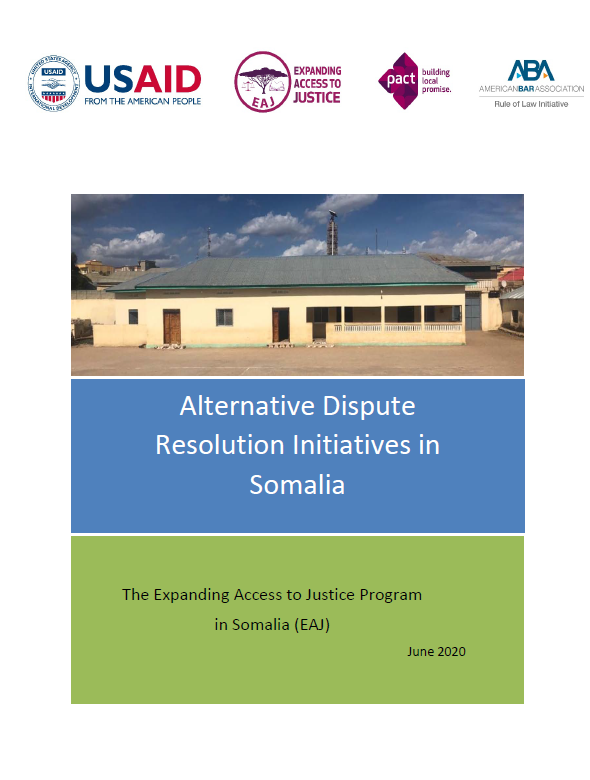Speeches Shim
In Somalia, Alternative Dispute Resolution (ADR) is one of several approaches to improve access to justice following the collapse of state institutions and the civil war in 1990-92, as it addresses both transitional justice and is a supplement to formal statutory justice. ADR often denotes the use of customary justice processes as alternatives to fledging statutory court systems, involving clan (tribal) elders and inter-clan agreements (known as xeer in Somalia). USAID Somalia’s Expanding Access to Justice (EAJ) Program has sought to better understand programming and support to ADR initiatives within the delivery of justice in Somalia.
The program’s recent research findings show that there is a level of trust communities bestow upon the variety of existing ADR initiatives, which is owed to a perception of them as being just, affordable, efficient, and accessible for urban populations. It appears that most initiatives are effective as they are based on Somali customary justice, as well as Islamic law (Shari’ah) norms and processes, which enjoy broad legitimacy among communities and require little resources and infrastructure. This contrasts with the nascent statutory courts which are often viewed as susceptible to corruption, manipulation by powerful networks, and underpinned by legislation that contravenes local norms.
However, the necessity of a parallel system based on local norms and processes raises the question to what extent the statutory judiciary is appropriate in its current form. At the same time, it was observed that particularly in urban areas traditional collective conflict resolution struggles to address individual rights-based issues, which are becoming more prevalent in Somalia’s rapidly urbanizing population centers. For example, local interpretations of the xeer and Shari’ah norms and processes often provides for outcomes that are detrimental to women. This tension leaves practitioners struggling with the challenge of providing support for a variety of dynamic ADR practices and the need for these frameworks to incorporate principals that support human rights, including the rights of women and other marginalized groups.


Comment
Make a general inquiry or suggest an improvement.